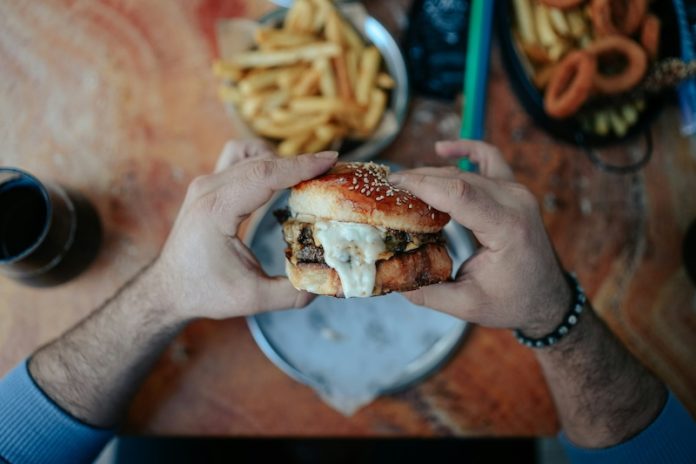
If you’re living with high blood pressure or diabetes—or both—what you eat can make a big difference in your health. These two conditions are closely linked to your diet, and certain foods can make them worse. The good news is that with some simple food choices, you can take better control of your blood sugar and blood pressure, and feel better overall.
High blood pressure, also called hypertension, happens when the force of blood pushing against your artery walls is too strong. Over time, this can damage your heart and blood vessels.
Diabetes, on the other hand, is a condition where the body either doesn’t make enough insulin or can’t use it properly, causing high blood sugar levels. Both conditions can be dangerous if not managed well, but making smarter food choices can help.
One of the most important things to watch is your salt intake. Salt (or sodium) can make your body hold on to extra water, which raises your blood pressure and puts more stress on your heart.
The American Heart Association says most adults should have no more than 2,300 milligrams of sodium each day, and ideally stay under 1,500 milligrams—especially if you already have high blood pressure.
Many processed foods are packed with hidden salt. Deli meats, canned soups, instant noodles, fast food, and frozen meals often have more sodium than you might expect. A helpful tip is to read food labels and look for low-sodium options whenever possible.
Sugar is another big concern, especially for those with diabetes. Eating too much sugar can make it hard to control your blood sugar levels. But sugar also plays a role in high blood pressure. Sugary drinks like sodas, energy drinks, and some fruit juices are some of the worst offenders.
They add lots of calories with little to no nutrition and can lead to weight gain. Being overweight increases your risk for both high blood pressure and type 2 diabetes. In fact, eating too many refined sugars and carbohydrates (like white bread or sugary cereals) can actually cause type 2 diabetes over time.
Fats in your diet can also affect both conditions. Not all fats are bad, but trans fats and saturated fats are the ones to avoid. These are often found in fried foods, packaged snacks, pastries, and anything made with hydrogenated oils.
They can raise bad cholesterol, make insulin work less effectively, and increase your blood pressure. Instead of these, try to include healthy fats like those found in avocados, olive oil, nuts, and seeds. These fats are better for your heart and can help your body manage insulin more effectively.
Red meat and full-fat dairy are also foods to limit. They contain a lot of saturated fat, which can raise cholesterol levels and make heart problems worse. It’s better to choose leaner protein sources like chicken, turkey, fish, beans, and lentils. These foods give your body the protein it needs without the extra fat.
Alcohol should be consumed in moderation, if at all. Drinking too much alcohol can raise your blood pressure and make blood pressure medications less effective. For people with diabetes, alcohol can also affect your blood sugar—causing it to either rise too high or drop too low depending on how much you drink and whether you’ve eaten.
Refined grains, like white rice and white bread, should also be eaten less often. These foods cause quick spikes in blood sugar, which is not ideal for people with diabetes. Whole grains—such as brown rice, whole wheat bread, oats, and quinoa—are a better choice. They are digested more slowly, helping to keep your blood sugar steady and providing more nutrients.
In short, managing high blood pressure and diabetes isn’t just about cutting out one or two foods—it’s about building a healthier way of eating. Try to limit salty and sugary foods, stay away from unhealthy fats, go easy on red meat and alcohol, and choose whole grains over processed ones.
Making these changes step by step can lead to big improvements in how you feel and how well you manage your health. And don’t forget—working with your doctor or a dietitian can help you create a meal plan that works best for your body and your lifestyle.
If you care about diabetes, please read studies about Vitamin D and type 2 diabetes, and to people with diabetes, some fruits are better than others.
For more health information, please see recent studies that low calorie diets may help reverse diabetes, and 5 vitamins that may prevent complication in diabetes.
Copyright © 2025 Knowridge Science Report. All rights reserved.



